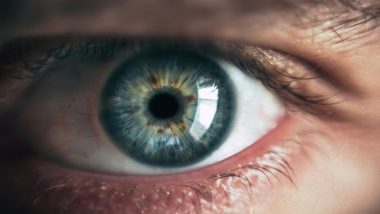The use of contact lenses has become increasingly popular in recent years, offering convenience and clear vision without the need for traditional eyeglasses. However, improper use or neglect of contact lenses can lead to serious eye health issues, particularly damage to the cornea—the clear, dome-shaped surface that covers the front of the eye. Here’s everything you should know about cornea damage due to lenses and essential tips to ensure safe usage: The cornea is a crucial part of the eye responsible for refracting light to help us see clearly.
When contact lenses are worn incorrectly or for extended periods without proper care, they can cause various types of damage to the cornea: These are small scratches on the surface of the cornea, often caused by debris trapped under the lens or by improper handling during insertion or removal. These are more serious infections of the cornea, typically caused by bacterial, viral, or fungal agents. Improper lens hygiene, extended wear, or sleeping in lenses can increase the risk of corneal ulcers.

Prolonged use of contact lenses can reduce the oxygen supply to the cornea, leading to the growth of new blood vessels (neovascularization). This condition can compromise vision and increase the risk of other complications. To minimize the risk of cornea damage and ensure safe contact lens use, consider the following guidelines: Before starting to wear contact lenses, it is essential to undergo a comprehensive eye examination and consultation with an optometrist or ophthalmologist.
They will determine the correct type of lenses for your eyes and provide instructions on proper wear and care. Always wash your hands thoroughly with soap and water before handling contact lenses. Use lint-free towels to dry your hands to avoid transferring lint or other debris to the lenses.
Use only the contact lens solution recommended by your eye care professional to clean, disinfect, and store your lenses. Never use saliva, tap water, or homemade solutions, as they can introduce harmful bacteria to your eyes. Different types of contact lenses have varying lifespans—daily disposables, bi-weekly, monthly, etc.
Follow the prescribed replacement schedule strictly to prevent buildup of deposits on the lenses and reduce the risk of infection. Unless prescribed otherwise by your eye care professional, avoid wearing lenses overnight or for extended periods beyond the recommended wear time. Extended wear reduces oxygen supply to the cornea and increases the risk of infections.
Avoid touching the tip of the solution bottle to any surface to prevent contamination. Additionally, do not transfer lenses to another storage case without first cleaning and disinfecting it thoroughly. Schedule regular follow-up appointments with your eye care professional to monitor the health of your eyes and ensure that your lenses fit properly and comfortably.
By adhering to these guidelines and being mindful of proper lens care and hygiene practices, you can enjoy clear vision with minimal risk to your eye health. Remember, your eyes are precious—taking good care of them ensures long-term vision health and comfort while wearing contact lenses..



















